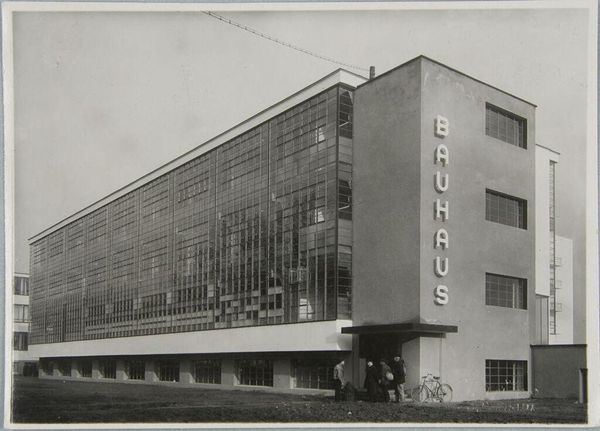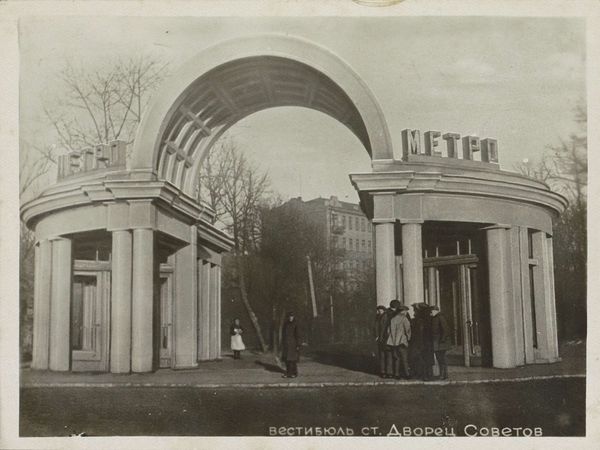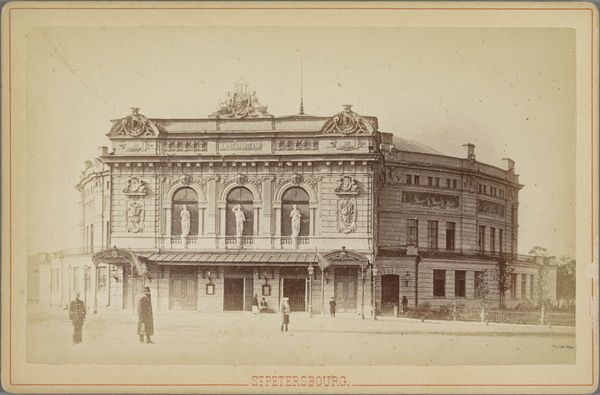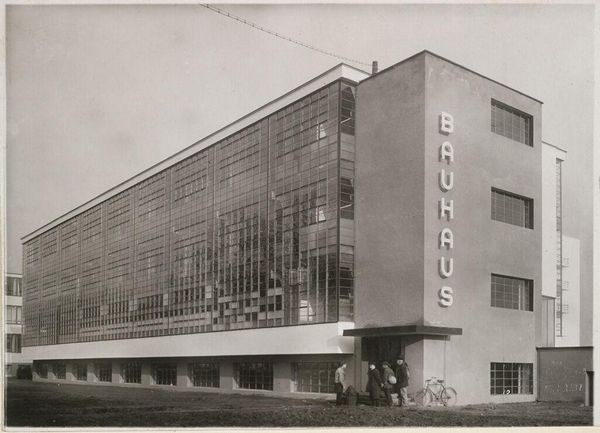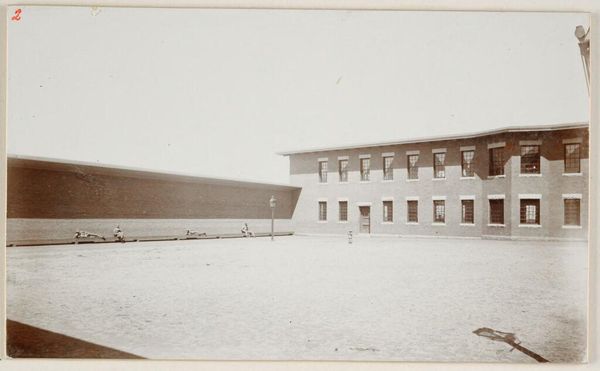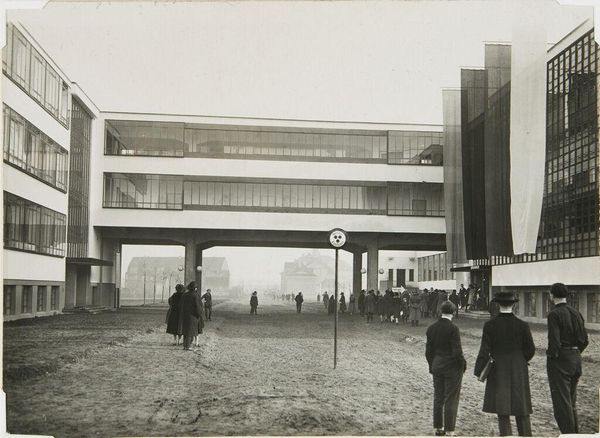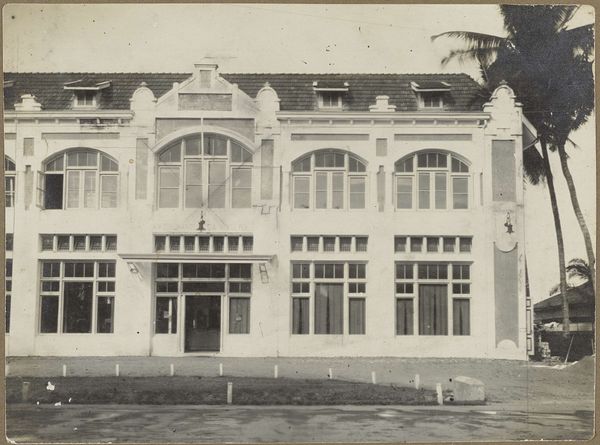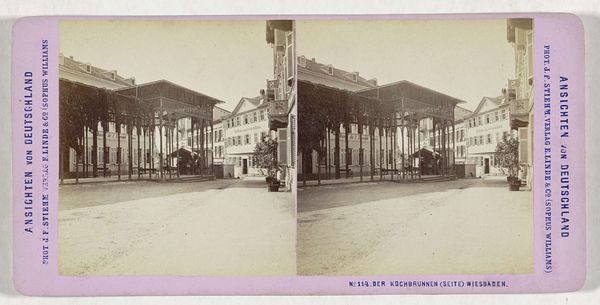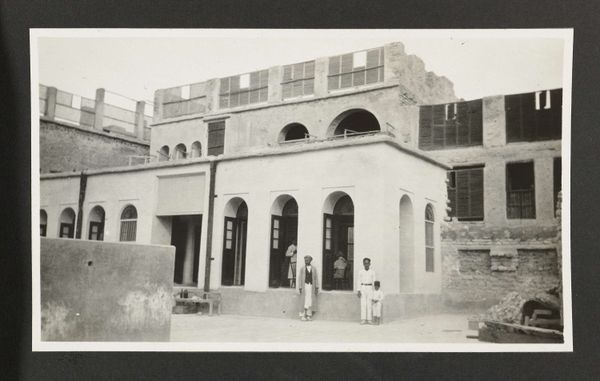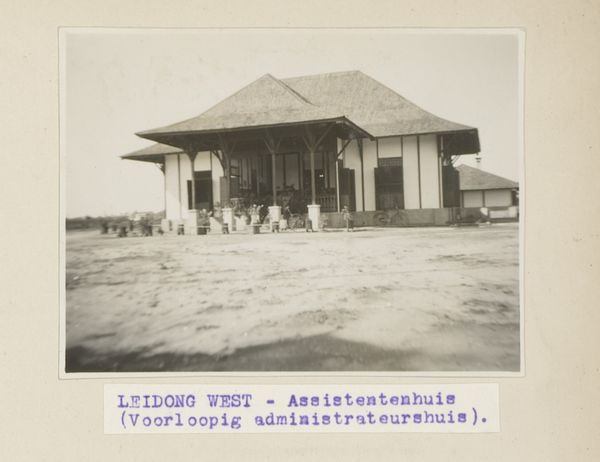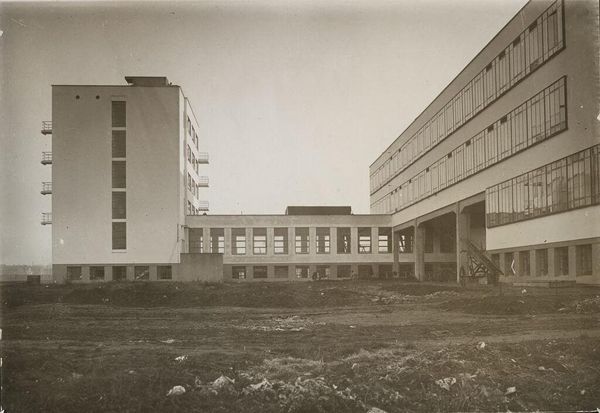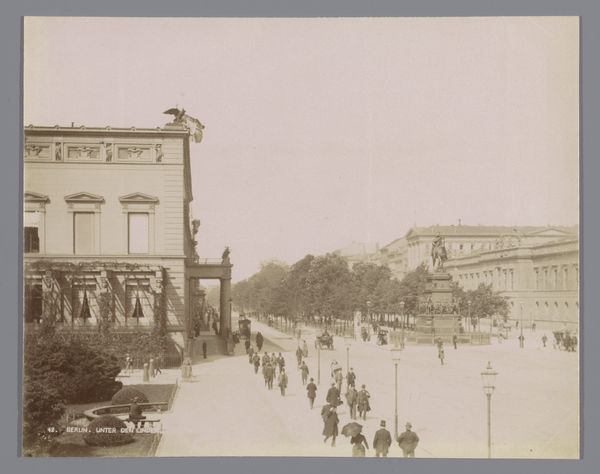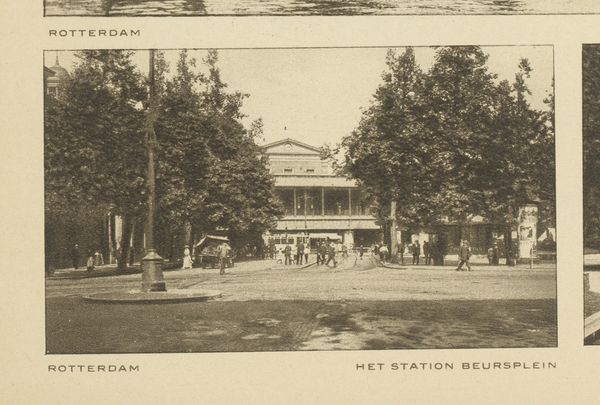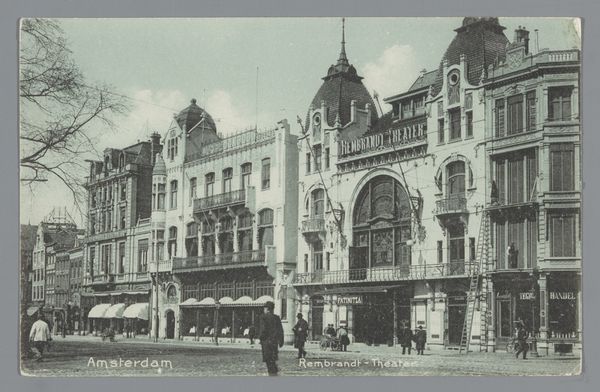
photography, gelatin-silver-print, architecture
#
constructivism
#
soviet-nonconformist-art
#
socialist-realism
#
photography
#
historical photography
#
gelatin-silver-print
#
cityscape
#
architecture
Dimensions: height 83 mm, width 118 mm
Copyright: Rijks Museum: Open Domain
Editor: This is "Exterieur van metrostation Kirov," a gelatin-silver print from sometime between 1930 and 1935, currently residing at the Rijksmuseum. It presents a somewhat austere image. All the people in the foreground kind of blend into the urban setting. What's your take on this? Curator: It's interesting how this photograph emphasizes the constructed environment. We see the marks of production everywhere. Look at the uniformity of the building materials, the repetition of shapes. It suggests a society organized around mass production and functionality, downplaying any kind of surface decoration. The gelatin-silver printing process itself reinforces this—it's a relatively efficient method for producing sharp, reproducible images, fitting for a society that valued utility and standardization. What kind of labour went into the building, would you guess? Editor: I suppose manual labour? Working with concrete must be exhausting, especially back then. Curator: Exactly! This piece asks us to consider the labour involved, even if those individual contributions are erased from the final image. Notice, too, the people are generalized—no faces stand out. Editor: So, this isn't just a photo of a building; it’s a record of Soviet society's priorities being put to work? Curator: Precisely. It encourages us to reflect on the resources, the workforce, and the very ideologies that shaped this environment, inviting you to rethink conventional notions of art that might focus more narrowly on aesthetics. Editor: That's a totally new way of seeing it. Now I understand how material and technique can be more expressive than, say, subject matter. Curator: Right? The focus on production reveals so much about the culture!
Comments
No comments
Be the first to comment and join the conversation on the ultimate creative platform.
